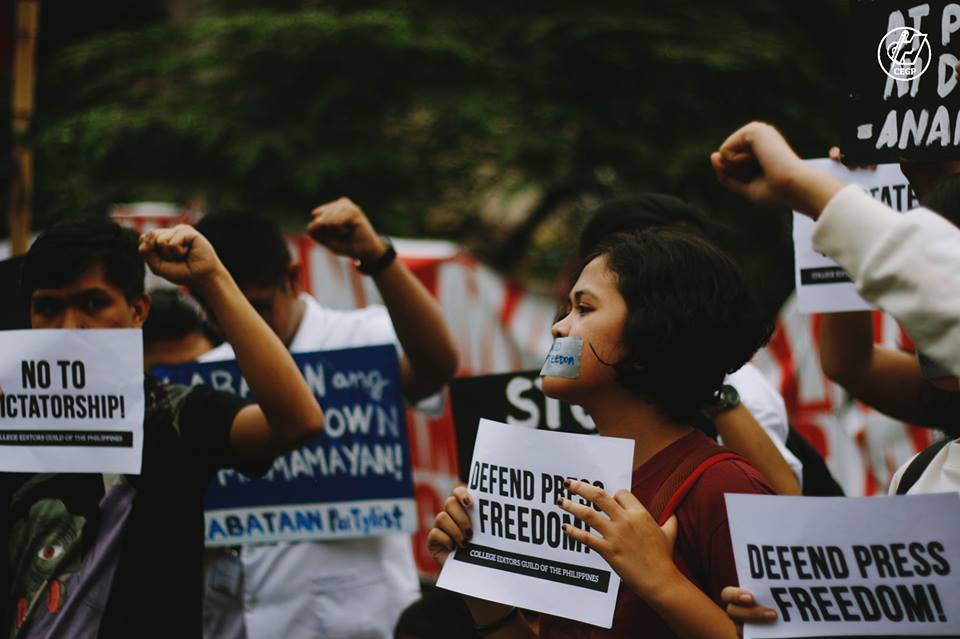
For the College Editors Guild of the Philippines (CEGP), the Philippine press is facing its worst nightmare again.
The group on Tuesday staged a rally in Mendiola, Manila near Malacañang to defend press freedom following the decision of the Securities and Exchange Commission (SEC) to revoke the license of the Philippine-based online site Rappler Inc., for violating the constitutional and statutory foreign equity restrictions in mass media.
Student journalists said in a statement that the attack in the Philippine press is a prelude to wilting democracy and freedom.
“The move is straight out of the late dictator Ferdinand Marcos’ textbook on building a ruthless and totalitarian dictatorship. Duterte is slowly putting death to press freedom, silencing those exposing the fully unveiled brutality of his regime that is leading to a dictatorship,” CEGP said.
Around 30 members of CEGP from the University of Santo Tomas, University of the Philippines and Adamson University joined the rally.
The students noted that the Philippines “as one of the freest press in Asia, is also the most dangerous in the world,” adding that the attack on the press is also an attack on the Filipino people.
“While the attack on Rappler is opening a wider scope of debate and discussion, the Duterte regime has, in fact, been attacking press freedom in the alternative media. Many alternative media journalists are tagged by Duterte himself as communist or members of the New People’s Army,” the group said.
“But time and again, the Philippine press has proven to rise above a fascist dictatorship. The press will continue to defend its freedom and fight for its duty to the Filipino people especially that it is a bulwark of truth and people’s democratic interests,” it added.
On Thursday, January 11, the commission en banc said that Rappler Inc. and its parent Rappler Holdings Corp. violated the Foreign Equity Restriction in Article XVI, Section 11(1) of the Constitution which states, “The ownership and management of mass media shall be limited to citizens of the Philippines, or to corporations, cooperatives or associations, wholly-owned and managed by such citizens.”
Presidential Spokesperson Harry Roque, however, denied on Monday the accusations that the Duterte administration has participated with the license revocation of Rappler.
Roque defended that those allegations were false claims. He said that the administration has nothing to do with it and the decision was solely from the en banc commission. He added that the constitution itself stated that any ownership of mass media shall be limited to citizens of the Philippines.
Roque also believed that the decision of the CES was not favorable to the administration saying that they are not appointed by the President.